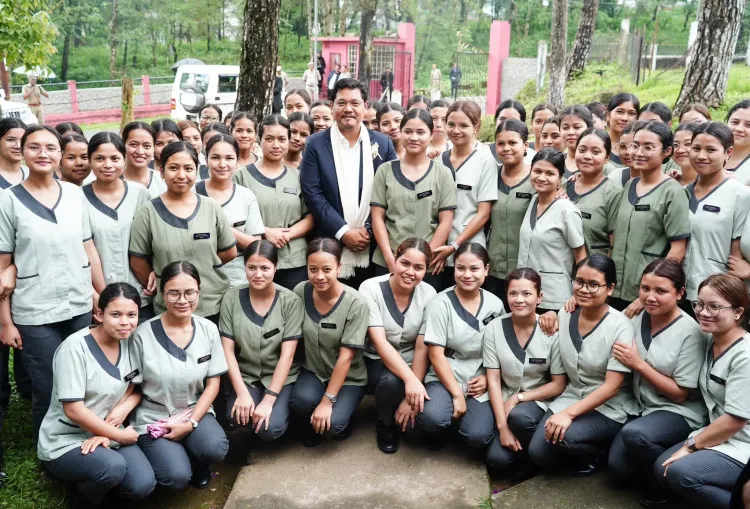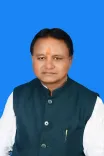Is Meghalaya Leading the Way in Healthcare Spending?

Synopsis
Key Takeaways
- Meghalaya invests over Rs 1,000 crore in healthcare.
- Collaboration with Church-run and non-profit hospitals.
- Support for traditional healing practices.
- Focus on reducing maternal mortality rates.
- Future healthcare conference planned for collaboration.
Shillong, May 21 (NationPress) Meghalaya has positioned itself as a front-runner in healthcare investment, allocating over 8 percent of its annual state budget -- exceeding Rs 1,000 crore -- towards the health sector, as reported by Chief Minister Conrad Sangma on Wednesday.
During an event held here, Sangma emphasized, “The government is not only backing state-operated hospitals but also partnering with Church-operated and non-profit medical facilities.” He further noted that rural health centres, like the Hubert Acupressure Centre, are to be included in the upcoming phase of infrastructure funding.
Additionally, the Chief Minister revealed that the government intends to promote traditional healing practices throughout the state, merging indigenous wisdom with formal healthcare delivery systems.
Deputy Chief Minister Sniawbhalang Dhar, who also spoke at the event, commended the community for their solidarity and enthusiasm. He expressed his pride in being linked to the Mookaswan region, praising the sisters for their committed contributions to healthcare.
In another significant development, CM Sangma provided the first tranche of Rs 1 crore under the Meghalaya Healthcare Advancement Policy (MHAP) to Dr. Norman Tunnel Hospital in Jowai, with a total aid of Rs 2 crore allocated to the hospital. The remaining Rs 1 crore will be disbursed upon receipt of the utilization certificate for the first installment. Under this initiative, Rs 10 crore has been distributed to five non-profit hospitals.
At the occasion, the Chief Minister reiterated the government’s ongoing collaboration with mission hospitals. “This is not merely a one-off act; it marks the beginning of a sustainable partnership. The program is adaptable -- institutions can determine their most pressing requirements and allocate the funds accordingly.”
The event was overseen by Rev. S. Lamare, who expressed appreciation for the support and requested ongoing help for infrastructure and nursing education. Dr. D. Nongpluh, Medical Superintendent, highlighted the critical need for a renal dialysis unit due to the rise in non-communicable diseases.
Moreover, the Chief Minister announced plans for a state-level healthcare conference aimed at enhancing collaboration among government bodies, mission institutions, and healthcare stakeholders. “We need to advance together to exchange ideas, close gaps, and improve services,” he said. The Chief Minister also indicated that sustained efforts in the health sector, particularly focused on reducing the high maternal mortality rate, have been fruitful, achieving a reduction of over 45 percent, aligning with the national average.
“This achievement is primarily due to initiatives like the Chief Minister Safe Motherhood Scheme, which guarantees real-time monitoring of every expectant mother in the state,” he added. He informed that technology is being harnessed to track and manage high-risk pregnancies, addressing issues promptly.










